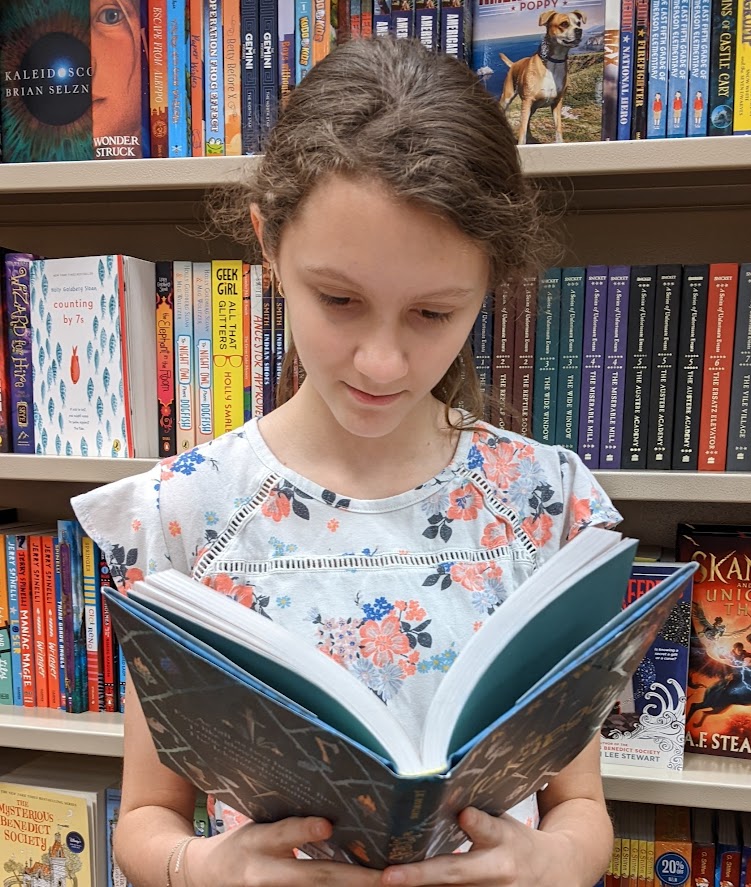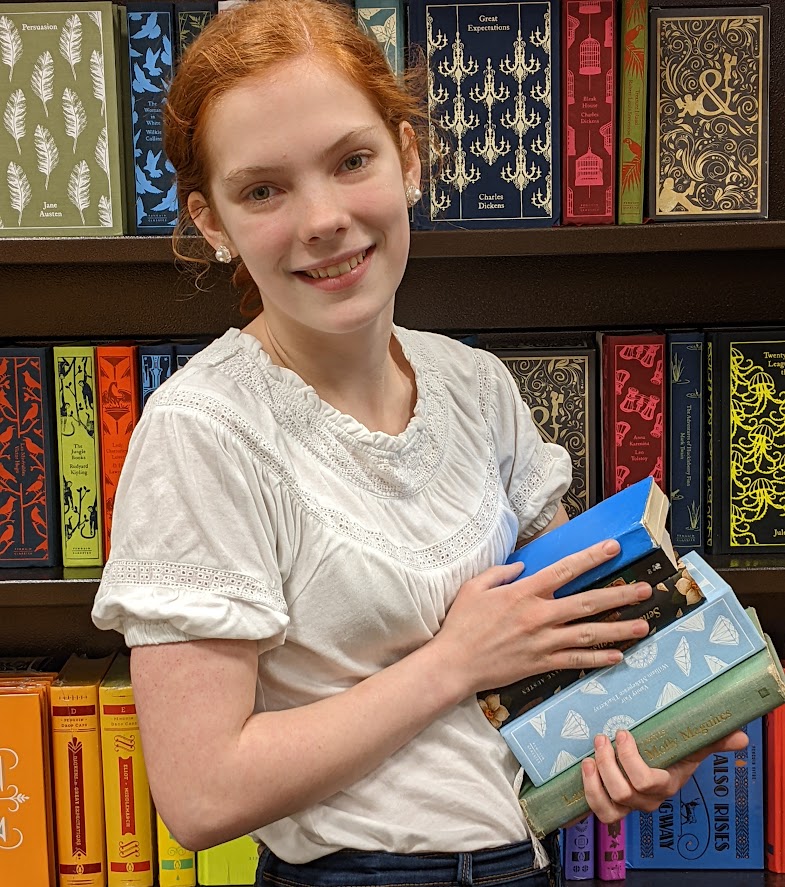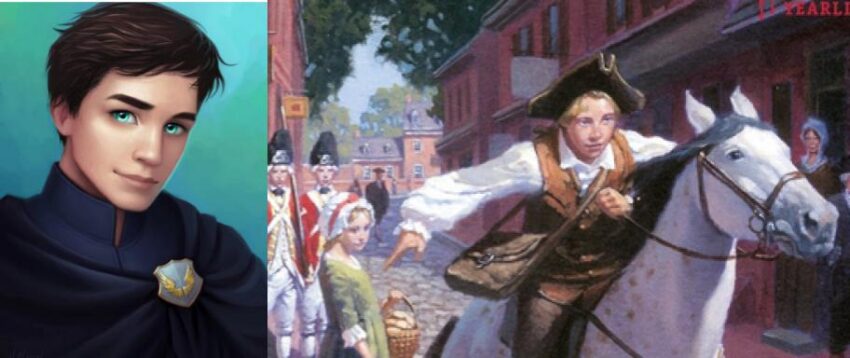Johnny Tremain is one of my (Mara’s) very favorite pieces of fiction. Ester Forbes crafted a character that captured my interest and sympathy from the very first page and didn’t let go until the very last. This is ironic because Johnny is, at least in the beginning, one of the most arrogant characters I have ever read about. Yet somehow Forbes managed to make him both extraordinarily relatable and sympathetic enough that listening to hundreds of pages of events filtered through the voice of a proud, self-centered character went past being simply bearable and became enjoyable.
On the other end of the spectrum is Fitz, from Keeper of the Lost Cities, who is as proud and arrogant as Johnny. You’d think you would relate more to a handsome fantasy elf after spending eight whole novels (and a novella) getting to know him, yet Johnny Tremain has only one book and its protagonist is far more loveable.
What made the difference between these two arrogant characters? Why is one the protagonist of one of America’s best-loved classics while another is one of the most hated side characters in fantasy? The answer is motive.
Johnny Tremain
For those of you who haven’t read the book (or could use a quick refresher), Jonathan Lyte Tremain is a teenage boy growing up in the years just prior to the start of the Revolutionary War. Johnny was born to a young widow who saw great promise, courage, and determination in her son and swore to give him every chance to make himself more than his poor upbringing and low economic status. She gave him three names to remind him of their connection to the Lytes, one of the most powerful families in Boston, and made sure to apprentice him to a skilled artisan, Mr. Lapham, before her death. When she passed, Johnny threw himself into work as a silversmith in Mr. Lapham’s shop, and quickly showed the promise that his mother had seen in him years before.
Through hard work, determination, and a fair bit of gall, Johnny is able to cultivate his talent and love for his craft. He quickly surpasses the other apprentices, both of whom are older than himself, and swiftly meets the skill of his aging master, Mr. Lapham. Soon even Paul Revere, the best silversmith in Boston, is willing to pay for Johnny Tremain’s time. By the age of fourteen, he is quite literally running the entire shop — negotiating deals, accommodating clients, and arguing over deadlines.
Johnny Tremain is living up to and even surpassing his mother’s wildest hopes. Nearly everyone in Boston knows his name, and he knows that a bright future and almost limitless career options await him after his time working for the Laphams is past. Years of work and the pain of losing his mother have finally paid off. He’s the youngest, most accomplished apprentice in Boston, and he knows it. Although he cherishes a care for Mr. Lapham, who was consistently kind to his mother, those who he considers to be beneath him receive the full brunt of every one of his witty remarks and jokes, including the older apprentices.
We, as readers, are able to absorb all of this within the very first chapter. We see his flaws, but we also see how he longs to be good and do well, not only career-wise. He is instantly, immediately relatable. Aside from the skillful foreshadowing and the whisper of the great events to come, this very first part of the book causes us to immediately root for Johnny, despite his flaws. We see his arrogance, we recognize his pride. But we also want to see him do well, to achieve more, and his flaws help him to do that. They help him develop beyond who he was in the first chapter to becoming a better person.
Fitz from Keeper of the Lost Cities
Fitz, from Keeper of the Lost Cities, is one of those characters who come off as a bit too perfect. He’s handsome, charming, and is the first elf our protagonist, Sophie, encounters before she is swept away into the Lost Cities. Fitz is the first one to show her the elven world and unlock the truth about her abilities. He tells her that she too is an elf and how certain elves are gifted with special abilities, including himself. He comes off as a bit stiff and prideful at first, but then… that doesn’t really change.
In the first book he constantly talks about how wonderful and gifted he is, and by book eight, he still speaks with a smug tone that aggravates even Sophie. The only reason that’s given for this pride is because he’s a Vacker. His family is known for being extravagantly rich (even for the elven world) and for contributing wondrous things to society. Fitz himself is a talented telepath, and almost everyone in the lost cities is expecting him to succeed in life.
The author could’ve given Fitz a relatable, intense desire to fulfill his family’s expectations as was done for Johnny Tremain, but instead Fitz doesn’t struggle with that. In fact, he doesn’t seem to struggle with much at all, giving no internal reason for his cockiness. He never achieves his desire and doesn’t overcome his fears, because there don’t seem to be any.
Fitz doesn’t have any flaws either, something that’s crucial to making a character seem human. He doesn’t make any mistakes, and the ones he does make are only devices to move the plot along. For example, he has a fury targeted at Sophie, but only in book two when his father was on the brink of madness. Instead of using this to grow their relationship and show the reader why Fitz was angry, the characters later excuse his hurtful words and move on, blaming all of it on his grief.
Similarly, the author and other characters seem to expect Fitz to be arrogant simply based on his upbringing. You could argue Fitz’s pride itself is a flaw, as it is for Johnny Tremain, but since Fitz doesn’t overcome it or deal with it in any way, his pride is treated more like a personality trait. Further, we never understand why he is so proud. Why is he unable to relate to the other characters? Since he spends most of the series with non-Vacker friends, why does he act as though he is so much better than them? For Johnny, it makes sense for him to have pride as a flaw since it’s a result of his motives and goals, and he learns to change it throughout the story. But Fitz doesn’t change. He just stays his prideful, stuffy self.
Why?
Why is Johnny Tremain the successful and beloved protagonist of a classic, while Fitz seems selfish and unrelatable?
The answer is motive.
Johnny Tremain has a clear motive for why he wants to be seen as clever, independent, and far above his incompetent coworkers. His mother had plans for him that she never had the chance to see fulfilled, and Johnny sees it as his duty to live up to her hopes of what he could become and prove both to her and to himself that he can conquer and achieve anything.
One of the best marks of having the right protagonist for a book is if the plot matters more to the protagonist than it would for anyone else. For Johnny, this is an understatement. If any of the other characters was blessed with his talent and gifts or cursed with the misfortunes that follow, they would not respond how he did, nor would the events of the book have impacted them anywhere near as much. Because of this, because we know his goal and understand why it means so much to him, we find him immediately, immensely relatable.
Fitz, on the other hand, is a closed book. We don’t know why he’s hiding everything behind a curtain of self-confidence or why he has sudden bursts of anger. Yet instead of exploring these characteristics and diving into why Fitz is so self-centered and angry, the author never allowed us to see Fitz’s desires and fears, which has only left her many readers confused and frustrated at his responses and interactions with the other characters. We don’t know where that anger is stemming from. We can’t tell why he closes himself off from the other characters and protects himself through a wall of arrogance. If we understood his motive, if we knew why the topics that make him furious are intimately relevant to him and his past, then we would find him much more relatable.
When a character is closed off like this, every action they take seems strange or out-of-character, because, as a reader, you’re not quite sure what acting in-character looks like. As a writer, you have to let your reader know the inside of their character, even if it’s only a brief glimpse into what truly drives them. We see and understand the root of Johnny’s pride through one brief conversation with a side character, and after that we need no other explanation. We understand where Johnny is coming from, and what view he filters the world through.
If you want your reader to deeply love and relate to your characters, no matter their flaws, you have to pull back the curtain and show them why. Motive is the key to a world your reader wants to know. I’ve never been the wealthy son of a successful and aristocratic elven couple. Neither have I been a teenage orphan growing up during one of the most turbulent times in this country’s history. But thanks to Johnny Tremain, I’ve had a view into what that sort of life would be like in a way that you can’t replicate anywhere else. No history book or reenactment can replicate the Revolutionary War like Johnny Tremain did for me. Nothing can bring me as close to seeing what those people saw, touching what they felt, or experiencing the emotions that the politics and values of that time pulled them through.
In short, nothing can touch a person like a story can — like Johnny Tremain did for me.



What arrogant characters have you found to be relatable? What arrogant characters do you detest? And how was this article? Too sweet? Too sour? Just right? Did you notice our brilliant collaboration?


Hello, I’m Sophia! I’m a child of God and I (if you couldn’t tell already) love to write! I’m also a total theater kid and strong dessert (specifically cupcake) enthusiast. For as long as I can remember, I’ve enjoyed both reading and making my own stories. I’m so glad I get to share with you what I’ve learned from some of my favorite (or sometimes least favorite) stories on this blog.


Hi! My name is Mara, and I’m a Christian artist, violinist, and blogger. I remember the day that I decided that I would learn something new about what makes a good story from every book I picked up — whether it was good, bad, or a mixture of both. I use this blog as a way of sharing some of the tips and tricks I’ve learned, and highlight which books, cartoons, and movies have taught me the most about writing an awesome story.


Yes!!!!
I feel like you could take this beyond arrogant characters. This has really made me think more about the motives of my characters. Thanks, girls!
BTW, I love the lemonade theme! I’m a lemonade fanatic! LOL
I just read the first book, and I found Fitz as very gentlemanly and helpful to Sofie in the beginning of the story. He does get quite arrogant when he notices Dex around Sofie (due to reasons I don’t really know yet, I’m excited to read the next book).
Yeah, I personally didn’t dislike Fitz in the first book, either. I’ve heard from the fanbase that he gets worse later on, but I’m glad you’re enjoying the series!